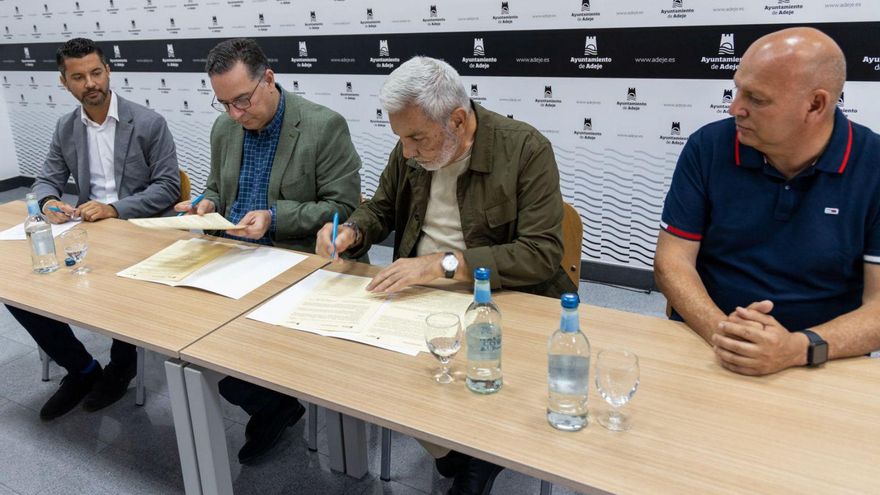
The Adeje City Council and the Education Department of the Government of the Canary Islands signed an agreement on Tuesday to co-finance projects to improve the educational infrastructure in the municipality, in response to the increase in educational demand due to the population growth in the region.
This agreement, signed at the Adeje Cultural Centre by the area councillor, Poli Suárez, and the mayor, José Miguel Rodríguez, includes initiatives such as the construction of a compulsory education centre (CEO) in Tijoco-La Hoya; the opening, in September, of an integrated vocational training centre (CIFP), where Hospitality and Tourism, Food Industries, Administration and Management, and IT and Communications courses, currently offered in the institutes, will be relocated.
The new facility will relieve the enrolment pressure on other centres in the area, reduce schooling stress, and cater to the high demand.
The agreement also includes the transfer, by the City Council, of the Niño de Adeje Nursery School to be converted into a special education centre (CEE), which will enhance the schooling of students with special educational needs. The current Adeje CEE is at its full capacity.
The parties announce that they are working to open specialized classrooms for students with specific educational support needs (NEAE) at the El Galeón and Adeje Secondary Schools in the upcoming academic years, where teachings for Transition to Adult Life Curriculum Specificities will be provided.
Gradually removing modular classrooms from the municipality, enhancing accessibility in centres with the construction of an access ramp at the Barranco de Las Torres school by the City Council, and refurbishing municipal facilities to accommodate classrooms associated with the Los Cristianos Official School of Languages (EOI) are among the actions included in the agreement.
To combat the effects of solar radiation and high-temperature episodes, the sports court of the Adeje Secondary School will be roofed, and photovoltaic panels will be installed in this centre and in the new Integrated Vocational Training Centre, as announced by the administrations.
After firsthand knowledge of the educational infrastructure situation in the south of Tenerife, the regional Education councillor proposed a shock plan in January with a series of measures to alleviate the impact of population growth on educational infrastructure and high-temperature episodes. Actions were presented to the educational institutions’ management teams, whose demands and needs were heard during the meeting held a month ago in Arona.















